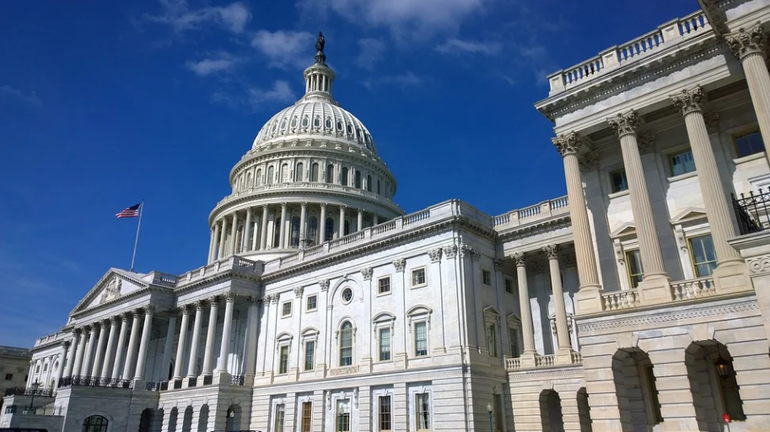Processing Your Payment
Please do not leave this page until complete. This can take a few moments.
-
News
-
Editions
-
- Lists
-
Viewpoints
-
HBJ Events
-
Event Info
- 2024 Economic Outlook Webinar Presented by: NBT Bank
- Best Places to Work in Connecticut 2024
- Top 25 Women In Business Awards 2024
- Connecticut's Family Business Awards 2024
- What's Your Story? A Small Business Giveaway 2024 Presented By: Torrington Savings Bank
- 40 Under Forty Awards 2024
- C-Suite and Lifetime Achievement Awards 2024
- Connecticut's Health Care Heroes Awards 2024
-
-
Business Calendar
-
Custom Content
- News
-
Editions
View Digital Editions
Biweekly Issues
- April 29, 2024
- April 15, 2024
- April 1, 2024
- March 18, 2024
- March 4, 2024
- February 19, 2024
- February 5, 2024
- January 22, 2024
- January 8, 2024
- + More
Special Editions
- Lists
- Viewpoints
-
HBJ Events
Event Info
- View all Events
- 2024 Economic Outlook Webinar Presented by: NBT Bank
- Best Places to Work in Connecticut 2024
- Top 25 Women In Business Awards 2024
- Connecticut's Family Business Awards 2024
- What's Your Story? A Small Business Giveaway 2024 Presented By: Torrington Savings Bank
- 40 Under Forty Awards 2024
- C-Suite and Lifetime Achievement Awards 2024
- Connecticut's Health Care Heroes Awards 2024
Award Honorees
- Business Calendar
- Custom Content
The US economy needs more stimulus. Is any coming?
 The U.S. Capitol building in Washington, D.C.
The U.S. Capitol building in Washington, D.C.
Economists are still calling for another US stimulus package to boost the economy as Americans head into an uncertain fall. But it's not clear that lawmakers can come to terms after talks stalled last month, especially as the November election nears.
What's happening: Treasury Secretary Steven Mnuchin told lawmakers on Tuesday that he believes "a bipartisan agreement still should be reached," and later spoke to Democratic House Speaker Nancy Pelosi. Still, longstanding disagreements remain.
After the call, Pelosi expressed concerns about Mnuchin suggesting a smaller deal in the near term, arguing that economists demand more.
"Sadly, this phone call made clear that Democrats and the White House continue to have serious differences," she said in a statement.
Clock is ticking: The window for Congress to act is growing smaller as the election nears.
"With the US election under just over [two] months away this could well be the last legislative battle before ballots are cast," Deutsche Bank's Jim Reid told clients Wednesday. "A lack of stimulus could result in softer data in the upcoming months."
The economy is bouncing back, with the Back-to-Normal Index from CNN Business and Moody's Analytics showing the US economy operating at 79% of where it was in early March. Manufacturing is on track for a "V"-shaped recovery, while retail sales quickly regained ground. But there are concerns that without more government money in Americans' pockets soon, the comeback could lose steam.
Visa said in a filing on Tuesday that spending on US debit cards grew 24% year-over-year in August. But that's slightly weaker than the growth it saw in July. The company said this was "partially due to the expiration of the elevated unemployment benefits."
Remember: Goldman Sachs warned clients that President Donald Trump's $300 supplemental unemployment benefit, passed by executive order, came "too little too late." The investment bank argued that the expiration of the $600 weekly supplement to unemployment insurance benefits at the end of July stood to disrupt consumer spending in August.
Goldman's current forecast is that Congress will implement another $1 trillion in stimulus by late September, pushing total fiscal aid to 17.5% of GDP in 2020. But the bank said that the risk of no additional stimulus until after the election has grown.
A very thin article: the economy is currently at no more than 80% of its pandemic level. Critically, the most recent data says the economy has plateaued or is now contracting. Initial claims for UI benefits is running well over one million a week--in the past four weeks it is north of six million initial filings! We are seeing more and more announcements of conversion of furloughs into layoffs; the airlines are soon to furlough or layoff a large share of their employees. The purely cynical will suggest Mitch McConnell thinks President Trump is going to lose--so McConnell wants Biden to get the worst imaginable economic situation--and will block recovery as he worked to do under Obama. That would set up the 2024 election for the GOP because the nation would still be struggling with recovery. Of course, only the very cynical would suggest such a dynamic, even though it fits the historical facts very nicely.
Setting that aside, the Fed has done very very well by way of the financial economy (see stock market valuations); but the Fed can NOT do much about the real economy, which is buying goods and services. Only households and businesses can do that--and they don't have the $$$$ to make those purchases. So the real economy is in very deep trouble, and without additional federal support to mitigate that dynamic, we are likely headed into a very serious and long-term recession.

2022 Giving Guide
This special edition informs and connects businesses with nonprofit organizations that are aligned with what they care about. Each nonprofit profile provides a crisp snapshot of the organization’s mission, goals, area of service, giving and volunteer opportunities and board leadership.
Learn more
Subscribe
Hartford Business Journal provides the top coverage of news, trends, data, politics and personalities of the area’s business community. Get the news and information you need from the award-winning writers at HBJ. Don’t miss out - subscribe today.
Subscribe
2024 Book of Lists
Delivering Vital Marketplace Content and Context to Senior Decision Makers Throughout Greater Hartford and the State ... All Year Long!
Read Here-
2022 Giving Guide
This special edition informs and connects businesses with nonprofit organizations that are aligned with what they care about. Each nonprofit profile provides a crisp snapshot of the organization’s mission, goals, area of service, giving and volunteer opportunities and board leadership.
-
Subscribe
Hartford Business Journal provides the top coverage of news, trends, data, politics and personalities of the area’s business community. Get the news and information you need from the award-winning writers at HBJ. Don’t miss out - subscribe today.
-
2024 Book of Lists
Delivering Vital Marketplace Content and Context to Senior Decision Makers Throughout Greater Hartford and the State ... All Year Long!
ABOUT
ADVERTISE
NEW ENGLAND BUSINESS MEDIA SITES
No articles left
Get access now
In order to use this feature, we need some information from you. You can also login or register for a free account.
By clicking submit you are agreeing to our cookie usage and Privacy Policy
Already have an account? Login
Already have an account? Login
Want to create an account? Register
Get access now
In order to use this feature, we need some information from you. You can also login or register for a free account.
By clicking submit you are agreeing to our cookie usage and Privacy Policy
Already have an account? Login
Already have an account? Login
Want to create an account? Register






1 Comments